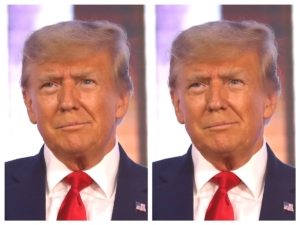South Africa has rebuked the latest U.S. State Department human rights assessment, calling it “inaccurate and deeply flawed” and accusing the U.S. government of peddling distorted narratives.
The report, released earlier this week by the Trump administration, claimed the country’s human rights record had “significantly worsened” in 2024. It alleged that white Afrikaners faced unjust treatment following sweeping land reforms, measures the administration argues discriminate against the group that once presided over apartheid.
In a statement, South Africa’s Foreign Ministry voiced “profound disappointment,” charging that the U.S. assessment relied on discredited claims and selective framing. The ministry contrasted Washington’s stance with the United Nations’ endorsement of the Land Expropriation Act as a landmark step toward addressing entrenched racial disparities in land ownership, stressing that the process was rooted in constitutional and human rights principles.
Labeling the criticism “ironic,” the ministry noted the United States’ own exit from the U.N. Human Rights Council.
“This is particularly striking given the significant and documented concerns about human rights within the United States, including the treatment of refugees and breaches in due process by its own agencies, such as ICE,” the statement read.
Watch a recent episode of The BreakDown podcast below and subscribe to our channel PanaGenius TV for latest episodes.
The government also rejected the report’s claim that it “did not take credible steps to investigate, prosecute and punish officials who committed human rights abuses, including inflammatory racial rhetoric against Afrikaners and other racial minorities, or violence against racial minorities.”
Relations between U.S. and South Africa have been increasingly strained since Donald Trump’s re-election. In May, during a state visit to the White House, Trump confronted President Cyril Ramaphosa with unfounded accusations that South Africa was illegally seizing Afrikaner-owned farms. The administration subsequently expedited visas for Afrikaners seeking refugee status in the U.S.
Tensions have been further inflamed by punitive economic measures, including a suspension of aid and 30% tariffs on South African exports, and by Trump’s vocal criticism of the country’s stance on the Israel-Hamas conflict. The U.S. government also expelled South African Ambassador Ebrahim Rasool following his pointed remarks about the U.S. president, while Trump has hinted at skipping November’s G20 summit in Johannesburg.
Meanwhile, Solidarieit, an Afrikaans trade union recently chastised by Ramaphosa over its outreach to U.S. officials, has announced a September mission to Washington. Its agenda includes pressing for the dismantling of racial-redress laws, reviving full diplomatic ties, and negotiating a “fair trade” agreement between the two nations.
READ ALSO: “Stop all work” – U.S. aid cuts derail HIV vaccine trials in South Africa










